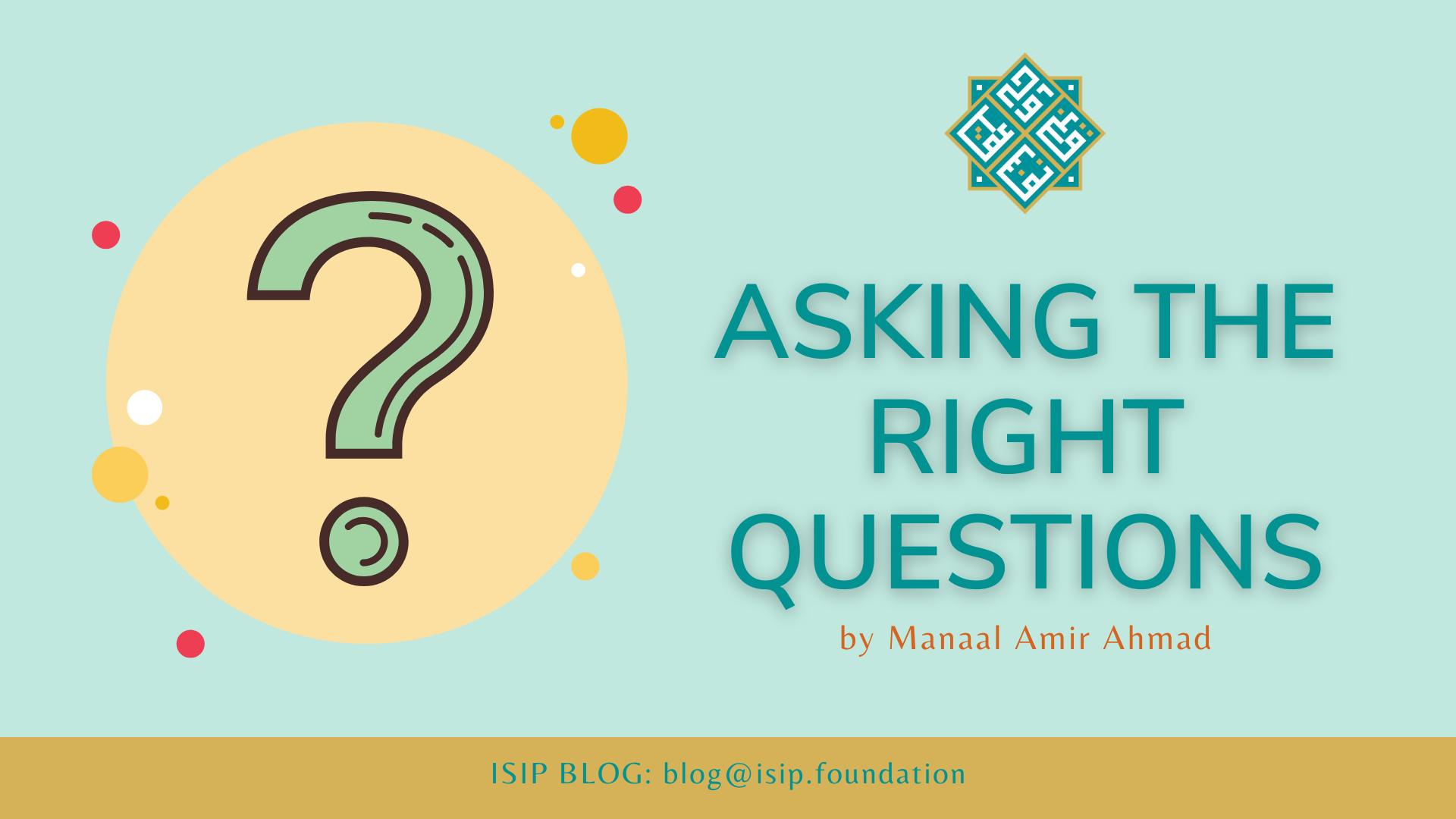In the vast tapestry of human experience, the search for understanding often begins with an earnest inquiry: why? Bahá’í teachings elucidate the profound significance of asking questions as an inherent right bestowed upon humanity. This right not only empowers individuals but also promises a transformative shift in perspective that can lead to enlightenment and a deeper comprehension of one’s existence in the universe.
At the heart of Bahá’í thought is the recognition that asking questions is a fundamental human endeavor. This reflects a divine attribute, the capability to ponder, seek, and ultimately comprehend that which lies beyond superficial appearances. In a world inundated with information, the ability to discern and inquire becomes paramount. It is through questioning that the mind cultivates critical thinking, shaping opinions and fostering a deeper engagement with truth.
The Bahá’í Faith emphasizes that every individual is endowed with the capacity to question and should exercise this right with both vigor and reverence. Questions can act as a conduit for personal and collective transformation, urging individuals to look beyond convention and explore alternative paradigms. By cultivating curiosity, individuals create a fertile ground for intellectual growth, spiritual enlightenment, and social progression.
One might ponder the nature of questions themselves. Interestingly, the quality of the inquiry is often as consequential as the inquiry itself. Bahá’í teachings elucidate that asking the right questions is imperative; this involves framing inquiries that provoke thought, inspire creativity, and advance understanding rather than merely seeking to confirm preconceived notions. A question posed with genuine intent and zeal has the potential to unravel the most profound truths.
However, embracing the right to question does not equate to fostering doubt or cynicism. Instead, it requires a delicate balance—an earnest quest for knowledge garnished with humility and respect for the insights of others. The Bahá’í teachings underline this delicate interplay, wherein one is encouraged to retain an open mind, allowing multiple perspectives to coexist. Such an approach engenders a more profound comprehension of the complexities of life, bridging divides and fostering unity among disparate viewpoints.
Moreover, the act of questioning is deeply interwoven with the notion of growth. Consider how children inherently embody the spirit of inquiry. Their unrelenting quest to comprehend the world inspires their guardians, urging adults to reassess their long-held beliefs. In this light, questioning transforms into an intrinsic part of human development, indicative of progress and evolution. Bahá’í principles advocate for the cultivation of this inquisitive spirit, encouraging individuals to remain perpetually receptive to learning and unlearning.
Furthermore, the teachings highlight the communal aspect of questioning. This collective endeavor to seek understanding not only enhances individual perspectives but also contributes to the collective advancement of society. Engaging in discourse surrounding challenging questions allows communities to confront pressing issues with compassion and understanding. When individuals come together to pose and explore questions collaboratively, it engenders a sense of solidarity, fostering an environment ripe for mutual growth and development.
The Bahá’í perspective on asking questions also underscores the moral obligation to engage with those whose viewpoints differ from our own. In a world plagued by division, the act of questioning promotes dialogue and understanding among diverse groups. A genuine inquiry can dismantle barriers, inviting a more compassionate exchange of ideas. Through such interactions, individuals may transcend their own limitations and gain insights that can lead to holistic solutions to societal challenges.
Moreover, the pursuit of answers—though noble—should not be misconstrued as an endpoint. The Bahá’í teachings remind adherents that the journey of questioning and seeking understanding is ubiquitous; it is, in fact, an everlasting pursuit. Life’s enigmas unfurl with time and contemplation, revealing layers of meaning and complexity that necessitate ongoing inquiry. The dynamic nature of truth demands that individuals remain adaptable, consistently re-examining their understandings in light of new experiences and knowledge.
Ultimately, the promise inherent in the Bahá’í commitment to questioning is a deeper connection to the oneness of humanity. In recognizing that all individuals possess inherent dignity, the act of inquiry becomes an expression of love and respect. It affirms the belief in the potential for understanding and empathy to flourish in the face of difference. Through thoughtful questioning, individuals can cultivate insights that resonate with the core Bahá’í tenet: the oneness of humankind.
In conclusion, embracing the right to question as advocated in Bahá’í teachings invites individuals to embark on a transformative journey. This journey not only enhances personal understanding and growth but also encourages a vibrant discourse that fosters unity and compassion within society. By asking the right questions, individuals open doors to fresh perspectives, challenge their assumptions, and contribute meaningfully to the collective human experience. 존중받는 고백으로서의 질문은 그 자체로 세상을 더 밝은 방향으로 변화시킬 수 있는 힘을 지니고 있습니다.
